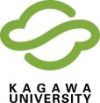Admission policy of the Graduate School of Agriculture
Prospective students are expected to have the following academic abilities, capabilities, and competencies:
- ①Solid acquisition of knowledge and skills
* Basic knowledge and understanding of university graduation degree on production and utilization of biological resources
- ②Critical thinking, judgement, and self‐expression
* The ability to express and explain various issues related to the production and utilization of biological resources based on their own logical thinking and judgment
- ③Research ability and application
* Basic skills and application necessary to carry out research related to the production and utilization of biological resources
- ④Exploration, motivation, and attitude
* Creative exploration, high motivation, and attitude towards learning and researching various fields regarding to the production and utilization of biological resources
- ⑤Ethics and social responsibility
* Ability to understand ethics and its social responsibility to realize a sustainable society in keeping with nature
- ⑥Global Mind
* Basic language skills to understand local and international information related to the production and utilization of biological resources and international way of thinking that allows for understanding these as issues of the local and international communities
Aim of each selection method
For General admission and Special admission for adults and working students, Phase 1 dates:
Candidates are to select “specialty” on the written exam from the special field of the faculty in the aspiring field. This evaluates the candidate’s knowledge and comprehension, logical thinking ability, and expression necessary in the Graduate School of Agriculture. Candidates must also complete an English exam, which measures their knowledge and comprehension skills necessary for studying, and the language management ability necessary for communication. Candidates of adults and working students are exempt from the English exam.
In the interview exam, which is based on the application documents (transcripts etc.), candidates will be evaluated of their knowledge and understanding in their studies; exploration, motivation, and attitude towards study and research; thinking, judgment, and expression skills to logically construct and convey their thoughts. Candidates will be also evaluated of their ability to understand ethical and social responsibility essential to the realization of a sustainable society.
For General admission and Special admission for adult/working students, Phase 2 dates:
In the presentation test, candidates are to present the contents of their graduation research and their research plan after admission. The ability to perform research and application, critical thinking, judgement, self-expression, communication skills will be evaluated. However, with regards to candidates who wish to skip grades or have not taken graduation research, candidates are to present their statement and research plan after admission.
In the interview exam, which is based on the application documents (transcripts etc.), candidates will be evaluated of their knowledge and understanding necessary for their studies, exploration, motivation, attitudes towards study and research, thinking, judgment, and expression skills to logically construct and convey their thoughts. Candidates will be also evaluated of their ability to understand ethical and social responsibility essential to the realization of a sustainable society.
For Special admission of self-recommendation-based entrance exam:
In the interview exam, which is based on the application documents (transcripts etc.), candidates will be evaluated of their knowledge and understanding necessary for their studies, exploration, motivation, attitudes towards study and research, thinking, judgment, and expression skills to logically construct and convey their thoughts. Candidates will be also evaluated of their ability to understand ethical and social responsibility essential to the realization of a sustainable society.
